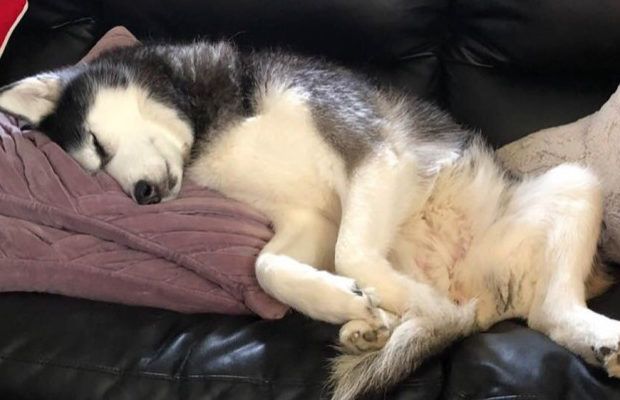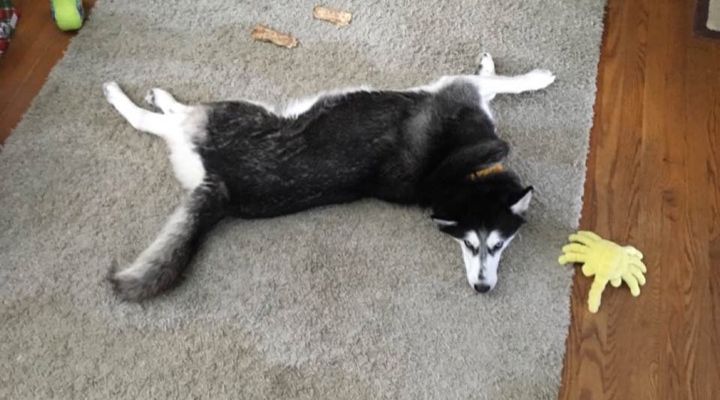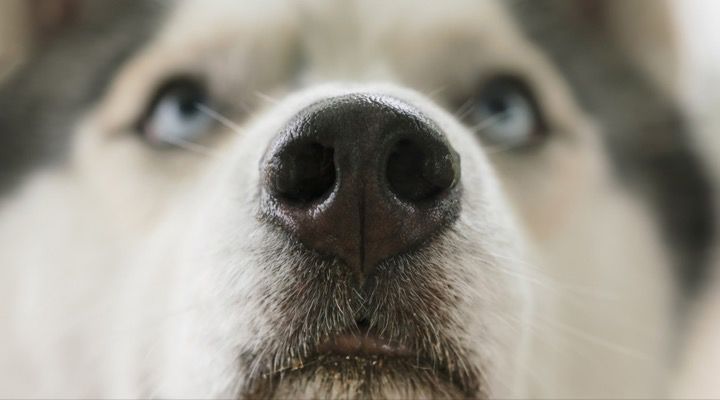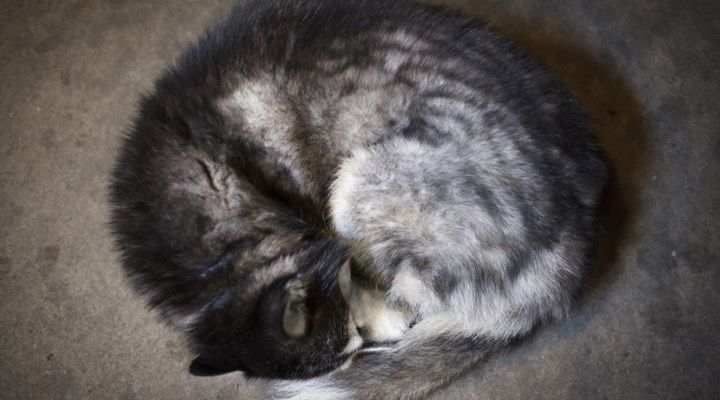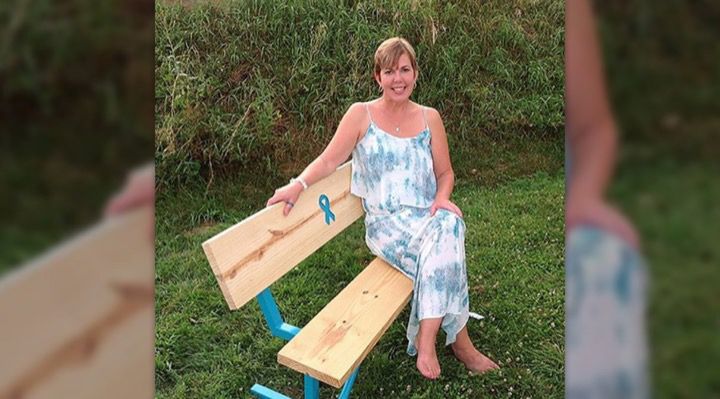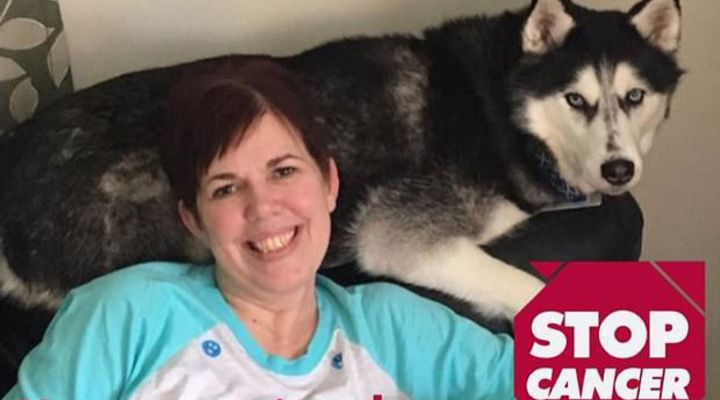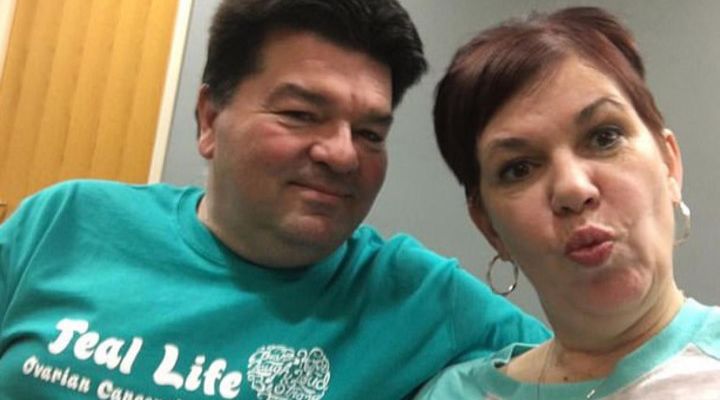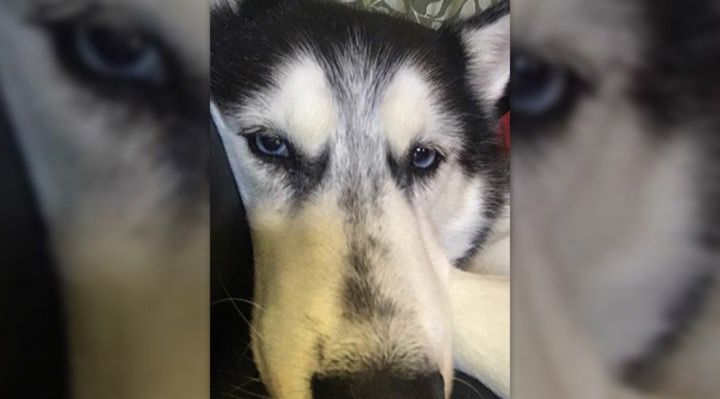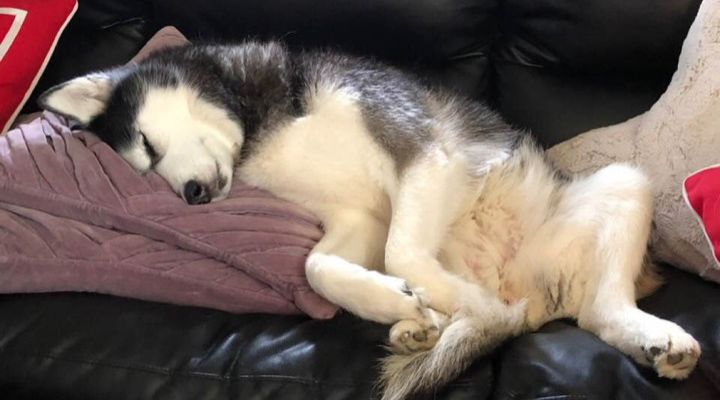Dogs have long been called ‘man’s best friend.’ However, the lovable species is capable of a lot more than just being our loyal and adorable companions.
When a Wisconsin woman adopted her son’s Siberian Husky, she thought she was just getting an adorable companion to share her time with. However, in the years that followed the adoption, she realized the special dog had an incredible talent and is crediting that talent for saving her life three times.
The Pain Begins
In 2013, Stephanie Herfel started to notice some discomfort in her abdomen around the time that she and her husband moved from California to Wisconsin. At first, she thought the stomach pain came from something she ate, or from her lifestyle.
Time To See A Doctor
Herfel assumed the discomfort would pass soon enough, yet it never did. Instead, the discomfort got more and more painful as time went on. When the abdomen pain became too intense to ignore any longer, Herfel decided it was finally time to see a doctor.
Explaining Her Symptoms
In the fall of 2013, Herfel finally went to the emergency room. While there, she told the doctor about the symptoms she had been experiencing as well as how long they had persisted. She told the doctor she was worried that something was seriously wrong since the pain only seemed to get worse.
The Dismissive Doctor
The doctor dismissed her fears and told her that she just had an ovarian cyst, which can be painful but will usually disappear on its own within a few months. The doctor then wrote her a prescription for narcotic pain medication for the pain and then sent her home.
The Doctor Knows Best
Herfel trusted the doctor and didn’t question anything when she was told that she had a cyst in her ovary, but otherwise had nothing to worry about. However, she started to question it shortly after when she was at home with her Siberian Husky named Sierra.
Strange Behavior
According to Herfel, she had adopted Sierra when she was nine months old from her son in the Air Force after he left for duty overseas. Sierra was normally playful and protective over Herfel. When they were together, Sierra was always right by Herfel’s side. So when the Husky started acting strange around Herfel, she started to worry.
Picking Up On A Scent
Sometime after being sent home from the hospital, Herfel noticed Sierra started sniffing her abdomen, which she had never done before. “She put her nose on my lower belly and sniffed so intently that I thought I spilled something on my clothes,” Herfel told the Milwaukee Journal Sentinel.
Hiding In Fear
“She did it a second and then a third time,” Herfel explained. What Sierra did next, however, scared Herfel even more. “After the third time, Sierra went and hid. I mean hid!” Sierra ran off and hid deep in a closet in Herfel’s home. When Herfel went to find her, she found the Husky curled up in a tight ball.
A Second Opinion
“To see her become so afraid was spooky in its own right,” said Herfel, who decided to make an appointment with her gynecologist to get a second opinion. This time, her doctor did some test and ordered some blood work to see what was causing her pain.
The Test Results
Several weeks later, Herfel realized why Sierra had acted so strangely around her. “So I made an appointment with a gynecologist,” she explained. “And in a matter of weeks and some blood work with an ultrasound, on 11-11-13 I was sitting in the gynecology oncologist room in shock that I had cancer.”
The Diagnosis
On November 11, 2013, Herfel’s doctor told her that she had stage 3C ovarian cancer, which was much more serious than the ovarian cyst she had originally been diagnosed with. Soon after, Herfel, who served in the US Marine Corps from 1984 to 1988, underwent a full hysterectomy and had her spleen removed.
Exciting News
According to Herfel, she also underwent chemotherapy until April of 2014 to fight the disease. After that, Herfel’s doctors told her that she had beaten cancer. However, they warned her that there was still a risk that the disease would return at some point.
The Risk Of Return
Herfel learned that for about 70 percent of women who are diagnosed with ovarian cancer, the disease eventually returns at some point. Those odds are even higher for women who are originally diagnosed with the cancer at a more advanced stage.
The Relapse
Since Herfel’s cancer was late-stage, her doctors warned that it was more than likely that it would return. Herfel understood her chances but hoped for the best. Then in 2015, she discovered her doctors had been right with their warning.
A Sign To Seek Help
This time, she realized her cancer had come back when Sierra sniffed her abdomen and ran off just like she had done the first time she had cancer. Herfel went back to the doctor, who ran more tests. As Sierra had signaled, the cancer had returned for the second time in her liver.
One Year Later
Herfel, who is a former grant writer, underwent treatment again and successfully battled the disease. After beating cancer a second time, Herfel went back to living her life and making the most of the time she had fought so hard for. Then in 2016, Sierra started acting strange again.
The Third Fight
Sierra signaled that something was wrong just like she had the two other times. Herfel went back to the doctor and confirmed what Sierra already knew. The cancer was back. This time, Herfel’s doctor found it in her pelvic area. For a third time, Herfel began treatment.
An Impressive Talent
“It’s almost like the dog knows something is going on and is scared. The dog didn’t want to be near her,” Ashley Wagner, the executive director of the Wisconsin Ovarian Cancer Alliance, told the Milwaukee Journal Sentinel about Sierra’s impressive talent.
A Lifesaving Dog
Herfel managed to fight the disease again and the 52-year-old is now cancer-free. “I owe my life to that dog. She’s really been a godsend to me. She has never been wrong,” Herfel said. According to her oncologist, David Kushner, some breeds of dogs have an incredible ability to accurately smell cancer.
Staying Positive
According to Herfel, she’s aware her cancer could come back but is trying to stay positive. “There are things that are coming out new every day. That’s how I live my life. I’m going to do the best thing I can do at the time until the next best thing comes along,” she said. “I just feel like my story can let people think about their animals and think, ‘Wow, my animal did this when I got diagnosed.’ Just to give the animals credit that they are pretty smart.”
